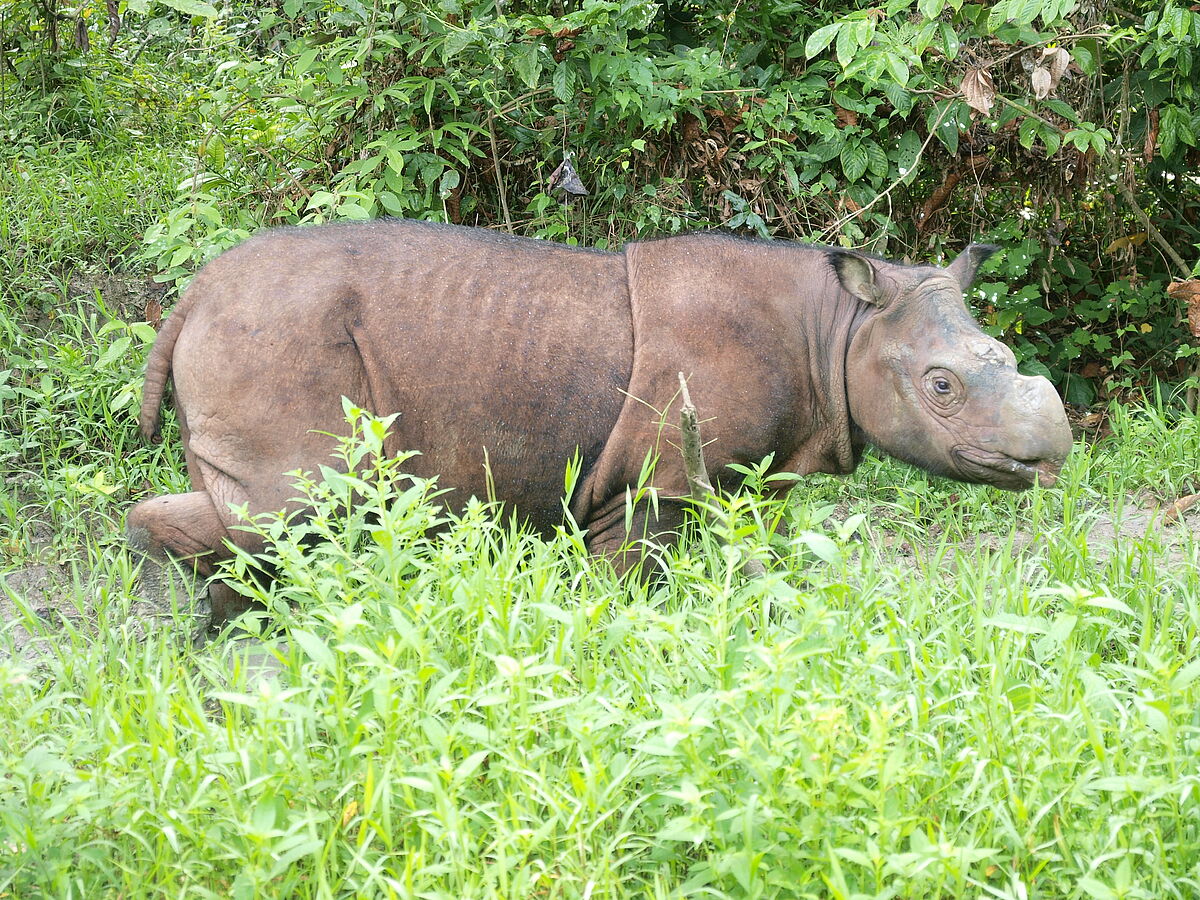To tackle species loss representatives of the Rhino and Forest Fund (RFF) and of the Forestry Department of Sabah / Malaysia launched a long-term reforestation project to restore forest in Borneo.
Borneo's unique biodiversity is threatened by deforestation and habitat fragmentation. To save endangered species like the Sabah rhino, the clouded leopard, or the orang utan, it is necessary to restore and reconnect degraded and fragmented forest land. On Monday 8th November 2011, a Memorandum of Understanding (MoU) was signed between the Sabah Forestry Department and a German-based NGO, the Rhino and Forest Fund, giving the green light for a long-term forest restoration project in and around the Tabin Wildlife Reserve. The first trees will be planted in January 2011. In the MoU the government of Sabah ensures that the reserve and the restored areas will remain protected, excluding any conversion or logging in the future.
The core area of Tabin remains still untouched and represents one of the oldest and most diverse rainforests in the world. The reserve is surrounded by oil palm plantations, restricting movements of large mammals. The restoration project of the Rhino and Forest Fund will increase habitat and reconnect patches of rainforest, enabling the movements and breeding of isolated populations, such as the pygmy elephant and the Sabah rhino.
The MoU was signed during the 'International Conference on Forests and Climate Change' held at the Magellan Sutera Hotel, in Sabah, Malaysia on Monday. Datuk Sam Mannan, Director of the Sabah Forestry Department stated during the conference: "Forests are important for Sabah's climate and its rich biodiversity. They provide fundamental services to human well beings and therefore need to be protected and restored."
The Rhino and Forest Fund aims to save biodiversity by reforesting degraded and fragmented habitat and has a special focus on the nearly extinct Sabah rhino (Dicerorhinus sumatrensis harrissoni). The RFF gets scientific advice from the Leibniz Institute for Zoo- and Wildlife Research (IZW) Berlin, Germany and funding from the Zoo Leipzig in Germany.
Dr. Petra Kretzschmar, co-founder of the German-based NGO stated: "We see the charismatic Sabah rhino as a flagship species for the diverse lowland rainforest in Sabah. The signing is a major breakthrough to effectively combine the protection of endangered species like the rhino and the restoration of their natural habitat."
Robert Risch, co-founder of the Rhino and Forest Fund concluded: "Our reforestation project will support Sabah's outstanding efforts to preserve its extraordinary biodiversity for future generations. Sabah is a hotspot of biodiversity and therefore of global significance. If Sabah loses species, the whole planet will become poorer. So there should be global awareness, cooperation and action on an international level to stop species loss.“
The restoration work will start in early 2011 and will be expanded during the next years.


